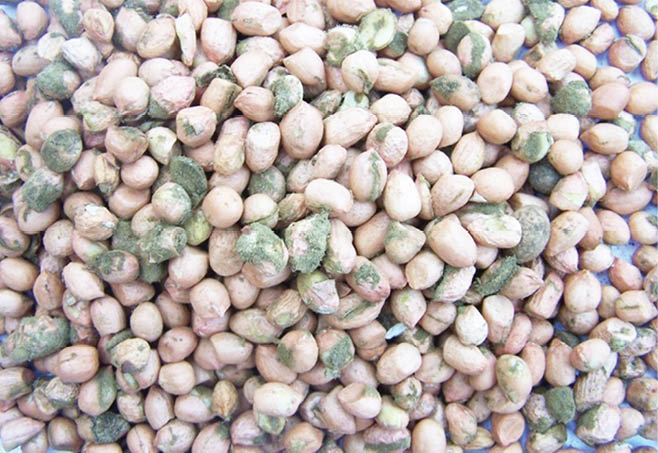Mycotoxins is most under-prioritized risk to public health, food security – NAQS
The Director-General of the Nigeria Agricultural Quarantine Service (NAQS), Dr. Vincent Isegbe, has identified mycotoxins as the most under-prioritized high-risk to public health and food security in Nigeria. Dr. Chigozie Nwodo, Head, Media, Communication and Strategies, NAQS, in a statement quoted Isegbe as saying this on Monday in Abuja during the 14th Annual Conference and […]

Mycotoxins infected groundnuts
The Director-General of the Nigeria Agricultural Quarantine Service (NAQS), Dr. Vincent Isegbe, has identified mycotoxins as the most under-prioritized high-risk to public health and food security in Nigeria.
Dr. Chigozie Nwodo, Head, Media, Communication and Strategies, NAQS, in a statement quoted Isegbe as saying this on Monday in Abuja during the 14th Annual Conference and Workshop of the Mycotoxicology Society Nigeria (MSN).
Isegbe, who spoke on the topic, ‘Mycotoxins and Health Outcomes,’ said “Mycotoxins are particularly destructive and dangerous because they affect crops that dominate the farmlands of Nigeria and the culinary culture of our people.”
He said the major classes of mycotoxins such as aflatoxins and ochratoxins impact food quantity and quality losses on a large number of agricultural commodities.
They include grains, groundnut, dried fruits, spices, oilseeds, fruit juices, and other foodstuff and feed crops.
Isegbe revealed that mycotoxins were “a crushing burden on the Nigerian food system” considering that they contaminate crops at all the points in the value chain – pre-harvest, harvest, drying, and storage.”
He lamented that Nigeria appeared to be doing less with her head start in mycotoxin research due to failure to harness accessible expertise and stimulate path-breaking research.
He challenged the mycotoxin research community and professional bodies such as the MSN to provide actionable science communication and thought leadership.
